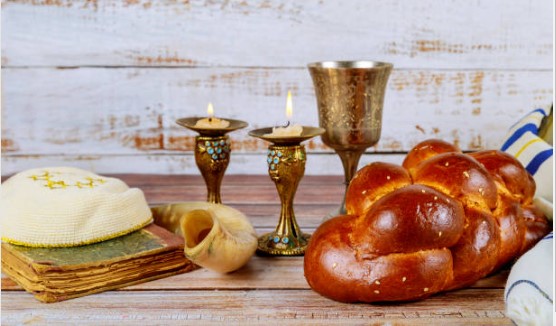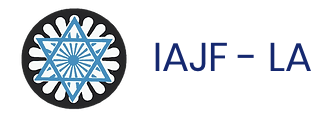August 31, 2023
Dear Community,
URGENT: Do you have family in Iran who want to come to America? If so, you must act quickly. Please see the flyer below about a meeting next Thursday night.
We are in the month of Elul two weeks before Rosh Hashanah. This month is very important for adjustments in our lives towards a better world. According to Rabbi Erez Sherman, the Senior Rabbi of Sinai Temple: “The Rabbis have many acronyms for the month of Elul. One such saying is eesh lreyehu ulmatanot levyonim, one should look inside their fellow human being and give to the most vulnerable.” We are grateful to the nearly 200 people who heeded this advice and, in a private gathering at the home of Ebi and Lida Simhaee under the chairmanship of Yoel and Sherry Neman and Elias and Shirley Shokrian raised nearly $750,000 for the Emergency Fund. This infusion of funds will enable us to deepen and broaden the support that is given to those in need in our community. Dr. Arman Hekmati has set up an endowment fund to encourage those who go into medicine to study geriatrics. We look forward to establishing other endowments in many fields.
On November 12th, Mrs. Manigeh Youabian, a lifetime community advocate and benevolent member of Emergency Fund is being honored. We will have a special evening with Sattar at the Federation when the whole community can participate in the Mitzvah of supporting those in need in our community. All proceeds will go to support the efforts of the Emergency Fund. The needs are increasing and we must rise to the challenge. Please save the date.
Speaking of saving the date, please block off Wednesday, January 10th when the tenth President of Israel, the beloved Reuven Rivlin will be the guest of Sinai Temple and IAJF on behalf of Ma’agalim of Israel. If you would like to support his trip, you are welcome to join us at the VIP reception that will precede the event at Sinai.
As you prepare for the High Holidays, you have the choice to join the historic Temple Beth El at our own building. Please see the information below.
Shabbat shalom.
M. Elie Alyeshmerni
President


https://www.rabbisacks.org/covenant-conversation/ki-tavo/we-are-what-we-remember/
iKi Tavo: We Are What We Remember
: کی تاوو: ما همان چیزی هستیم که در حافظۀ خود داریم
Ki Tavo teaches us the importance of being mutual in our relationships. We understand that we do not give to receive, nor do we perform mitzvot to receive mitzvot, but in order to maintain our strong relationships with one another and Hashem, balance and respect must be acknowledged. Showing our love through our words, actions, and efforts not only bridges gaps of doubt and insecurity between us. It also inspires people to follow in pursuit of kindness and compassion. Like a domino effect, we do not greet goodness with malice or disdain. Rather, we greet it with warmth, and we pay the act forward through our own acts of mitzvot. These cycles begin from us and continue through us because we understand the weight of how we treat each other.




HEARING THE CALLMany of us look forward to Rosh Hashana to hear the blasts of the shofar. The shofar’s blasts, a set of notes that often connote brokenness, awaken us to crying. Our internal cries and the cries of those within our community and around the world. Rabbi Shimon Apisdorf writes, “The call of the shofar is the sound that wakes us up so that we will make a choice for clarity, for awareness, for a fully constructive and purposeful life.”But what happens when we don’t blow the shofar? This year, Rosh Hashana falls on Shabbat. According to Jewish law, we don’t blow the shofar on Shabbat. Come to services on the second day of Rosh Hashana, you will see the familiar ram’s horn and hear a tekiah. But not on Friday evening or Saturday morning. How do we celebrate Rosh Hashana without one of the most central images, sounds, and experiences?Simple. When you cannot hear the shofar, be the shofar. As it is said in Pirkei Avot, “In a place where there are no men, strive to be a man.” What does it mean to be a shofar? Where we see brokenness, let us not merely recognize pain but also be willing to act as a comforter. Where we see abuse, let us not close our eyes to the injustice experienced by others. Where we see opportunities to be a light unto others, let us not expect someone else to provide the match. Being a shofar is raising our hand to be called upon as God’s messenger, God’s partner, God’s amplifier of goodness.We rarely hear the actual shofar. The days of Elul and Rosh Hashana and end of Yom Kippur are yet but a reminder of what we should already know. There is an alarm clock
within each of us ready to ring. The question is whether we will silence the alarm or heed its call.Shabbat Shalom

Rabbi Nicole GuzikSenior Rabbi, Sinai Temple www.sinaitemple.org

We are excited to return to the main sanctuary of Hollywood Temple Beth El for our High Holy Day services as we celebrate over 100 years of service to our community.
We have always looked to the Jewish religious and communal needs of the people of our unique neighborhoods. We identify ourselves as following the traditions of Judaism while making it work for the 21st century. For that reason, we have men and women together participating in our services, and we have reached out to the home-bound and the ill or elderly through our live streaming of our services.
We blend the religious traditions of our communities, who bring the traditions of Ladino, Persian, and Eastern Europe Jewry, as well as the modern traditions of American Jewry. We have been a home to Jews who survived the Holocaust, and who fled oppression from the former Soviet Union and the current regime in Iran. In so doing, we are keeping alive the project started by the founders of this, the first synagogue of the Hollywood area, the same founders of the great entertainment industry that has shaped this dynamic metropolis.
We look forward to working with the Iranian American Jewish Center in furthering this goal.
About High Holy Days at Hollywood Temple Beth El
Rise up on High these High Holy Days with our blend of traditional and contemporary Ashkenazic and Sephardic prayers and melodies, with teachings by Rabbi Norbert Weinberg and Dr. Isaac Norman, and chanting by Cantor Issac Boudaie. Our personalized Mahzor, prayerbook, especially designed with contemporary readings, translations, and transliterations, so that the ancient Hebrew liturgy is accessible and addresses the spiritual search of the contemporary Jew, while we add some Jewish soul music background to the services to elevate the mood.
Rosh Hashanah this year begins Friday evening, September 15 and runs through Sunday, September 17. Yom Kippur begins Sunday evening, September 24, and continues through Monday, September 25. The services will be conducted in the Main Sanctuary. There will be online access through streaming services to enable those who are ill or elderly to be part of our worship.
Fees for in-person seating are $125 per person. Via zoom: $36 per person. Additional donations
are always welcome.
Reservation of seats or zoom access can be done online: Click here or by mail: c/o Hollywood Temple Beth El, 1317 N Crescent Heights Blvd, West Hollywood, CA 90046

High Holy Days Schedule:
ROSH HASHANAH DAY 1
Saturday, September 16, 2023 10:00 AM
ROSH HASHANAH DAY 2
Sunday, September 17 2023, 10:00 AM
YOM KIPPUR KOL NIDRE
Sunday Evening, September 24, 2023 6:30 PM
YOM KIPPUR and YIZKOR
Monday, September 25 ,2023 10:00 AM
YOM KIPPUR NEILAH
Monday, September 25 6:15 PM

Rabbi Dr. Norbert Weinberg, Rabbi at Hollywood Temple Beth El in the 1990’s, has returned to serve again as of 2013.
Prior to that, he served as Director of the Center for Jewish Studies of the Histadrut (Labor Union) at Bet Berl College in Israel as well as congregations in the US. He and his wife, Ofra, also operated an accredited supplemental education service in Encino for close to two decades. He has authored numerous academic and popular essays and authored Courage of the Spirit, a survey of the historical trends that impacted the Jews of 20th Century Europe.
He blogs at www.RabbiNorbert.com. and and posts his lectures on You Tube (Click here).
Rabbi Weinberg earned his Rabbinical ordination, MA and DD honoris causa (for service to the Jewish people) from the Jewish Theological Seminary, graduate courses at the Hebrew University, and his BA from New York University. He is a member of the Rabbinical Assembly and the Board of Rabbis of Southern California.




